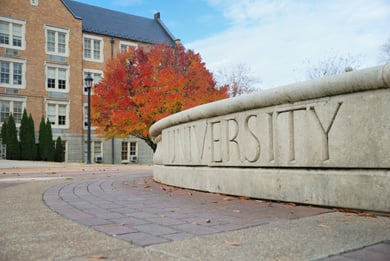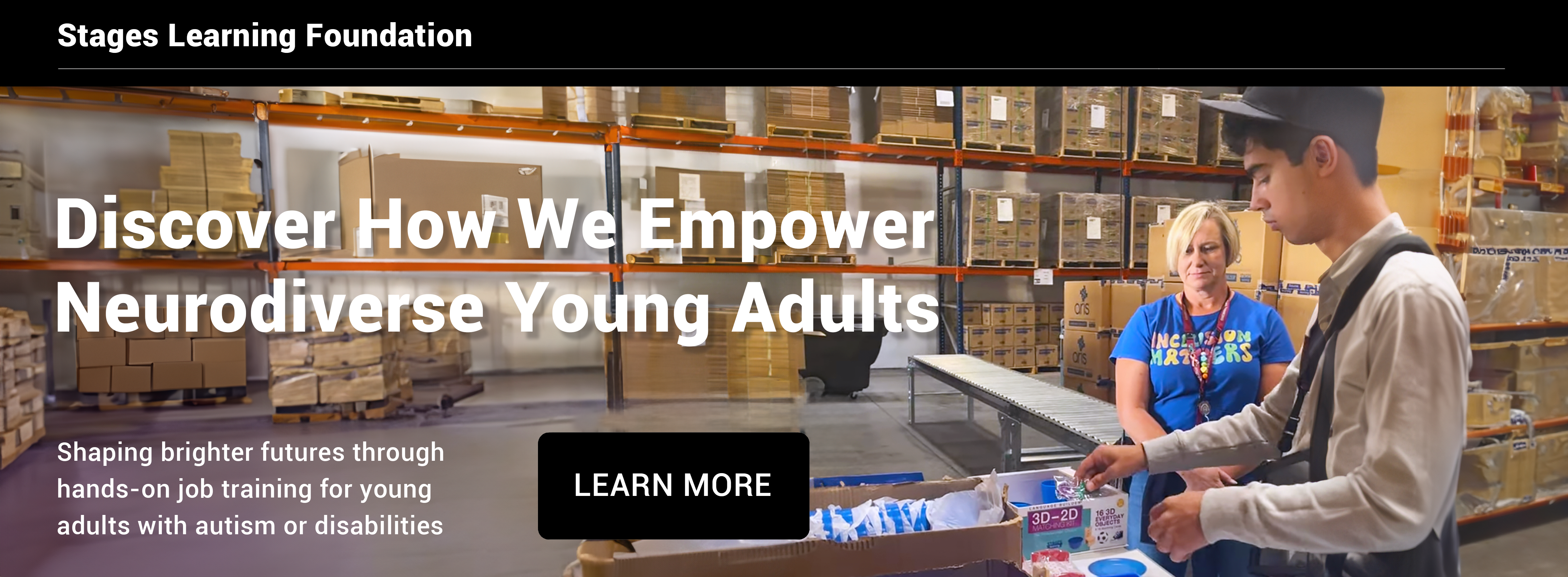Is College Right for My Autistic Child?
How can a family best take advantage of available resources and avoid obstacles, to plot a successful post-high-school experience for an autistic child? As Steven Covey wrote in The Seven Habits of Highly Effective People, “Begin with the end in mind.”
What is your destination?
What is your child’s occupational goal? What information do you have about potential outcomes? What more information do you need? Has your child had the benefit of career counseling in high school? Many schools have excellent career guidance; some have very little that would be helpful for an autistic person. Have a family meeting to share hopes and concerns. Is there a budget to be mindful of in deciding on a post-secondary program? Ensuring that everyone’s interests and apprehensions are heard in a family meeting is important in planning this major adventure.
Hint:
Go to O-Net. This compendium of information on occupations and hiring trends includes details on skills necessary for every known job in the USA. Plus, there is a free assessment tool available (click on “My Next Move”) that helps to narrow down occupational interests if your child has not had the chance to complete any career assessments. For careers that are especially suited for some autistic adults see Career Choices for Autistic People.
Hint:
Is your child uncertain about a career path? Consider volunteerism. This is a great way to explore a field of interest, without making the financial commitment that college requires. As a bonus, it looks great on a resume! A helpful website is www.volunteermatch.org, which allows the seeker to sort volunteer opportunities by geographic location, or career interest.

Have you considered other options?
At some point, your family has probably taken a vacation, and you had to decide: Do we stay in a hotel? A bed-and-breakfast? An all-inclusive resort? Do we drive, or fly? Rent an RV? You have a similar series of choices in identifying the right program for further study and career preparation. If your child wants a breadth of education, college might be the right choice. If your child wants to be a carpenter, college is not the best option; perhaps an apprenticeship would be a better fit. Or does your child aspire to be a computer whiz? Maybe a coding boot camp would be a good match, and these are available in online or in-person versions, full- or part-time. These are just a few examples of careers that call for different types of preparation. O-Net, referenced above, also provides links to information on training for many different kinds of jobs. And it must be mentioned that perhaps your young person would prefer going straight into the world of work without further schooling. Getting a job straight out of high school is difficult, but not impossible.
Hint:
Look at apprenticeship.gov for information on apprenticeships in a variety of fields.
If your child wants to pursue a career in a hands-on field like cosmetology, a trade school will provide all the training needed to meet the licensure requirements for this profession, without the liberal education requirements of a college program. Every state has its licensure criteria for professions that require a license; you can search your state’s official website for this information.
You’ve got the destination nailed down. Now what?
All colleges, apprenticeships, and training programs are not created equal. You will want to do a good deal of research to identify those locales and specific programs that will provide the greatest assets and the fewest liabilities for your budding astronaut.
 Look at outcome data; for example:
Look at outcome data; for example:
- How many people are admitted to this program, and how many finish it?
- How many graduates can get jobs in this field?
Sometimes college and trade schools do a better job of getting students in the door, than in helping them to graduate, or to find relevant work after graduation. According to the National Center for Education Statistics (NCES), four-year public colleges have a 61% graduation rate; private non-profit four-year colleges have a 67% graduation rate, and private for-profit four-year colleges have a 25% graduation rate. If you think that’s concerning, consider also that these statistics reflect graduation within six years of attendance, not four.
Hint:
Additional information on the NCES website may be helpful to you in calculating the likelihood that your student would be likely to complete a college program at a particular institution.
Hint:
Consider a local community college. Many two-year career-focused programs result in an Associate’s degree. This might be an opportunity for your student to see if college is a good fit before going on to a four-year college. Plus, most community colleges have reasonable tuition rates and your child can continue to live at home, at considerable cost savings.
Maximize resources, and minimize obstacles.
Ryan Paskins2 identified 37 individual barriers to academic success in post-secondary education for autistic students and 47 institutional or systemic barriers. Additionally, 45 specific supports were identified. I have summarized the key barriers as follows:
Individual barriers:
- The student does not access available services or doesn’t follow through with the accommodations provided.
- Parents are over-involved, unrealistic expectations of what the school will provide.
- Student’s needs exceed what the institution and staff can deliver.
- Poor organizational skills, lack of time management or task-approach skills.
- Social problems, such as poor social interaction skills, boundary issues (ex: inappropriate hugging, following, intruding on others’ personal space), and difficulty adjusting to social norms in shared housing.
- Inflexibility, depression, anxiety, isolation, lack of social support.
- Poor self-care -- ex: personal hygiene, regular exercise, eating healthfully.
- Procrastination and distractibility, ex: playing video games and avoiding schoolwork.
Institutional barriers:
- Institution does not reach out to ASD students and parents to acquaint them with services available, and limitations to services.
- Ignorance or negative attitude of faculty or staff towards providing accommodations.
- Sensory barriers cannot be effectively reduced or eliminated (lighting, noise, etc.).
- The services provided are inadequate for students’ needs.
- Classrooms lack the necessary equipment or technology.
- The institution does not provide adequate staffing or resources to Disability Services Office.
- Campus culture not welcoming of individual differences.
Do these sound familiar to you? Are these similar to barriers your child had to deal with in high school? Are there individual barriers your child is likely to take along to college, trade school, or an apprenticeship? What do you need to look for, to ensure your student has the highest likelihood of success? Here is a summary of the supports that Paskins3 identified in his study:
Supports:
Look for an identifiable Disability Services Office or Counselor. Many accommodations are mandated by the Americans with Disabilities Act (ADA). These consist of supports designed to address the specific needs of the individual with a documented disability. They include classroom support, administrative accommodations, and non-academic accommodations.
- Classroom supports might include such things as preferential seating, assigned note-takers, and alternative assignments. Study skills workshops might be provided for autistic students, or training in executive functions (cognitive skills).
- Examples of administrative accommodations might include assigned parking or bus passes, assistance in applying for financial aid, or help with finding campus employment. It could be the substitution of one course for another in a program of study; essentially, flexibility in how to meet the requirements of graduation.
- Non-academic supports might include mental health support, specific ASD support groups, enhanced career counseling, training in independent-living skills (food preparation, chores, hygiene practices), and specific social opportunities. It might include psychoeducation for faculty and staff about ASD, or for staff to reach out to the family to provide parental support. Training for autistic students learning self-advocacy skills might also be offered.

Putting it all together.
At this point, you might be thinking, “Wow, this is very complicated.” If it sounds like a lot of work to decide if college is right for your child, well… it is! These are important choices you will be making as a family, and doing the up-front research, and having potentially difficult conversations with your child, are all part of it. It is probably not possible to cover all the bases, but if you identify what the most important elements are for your family, you are more likely to have a positive outcome. Just like that vacation you are planning, sometimes the spontaneous parts are the most fun, but you still want to ensure that you make it to your destination.
If you think college is the right choice for your autistic child, consider hiring a professional who has experience working with students with learning differences to help with the process, especially if your child’s high school does not have a strong college counseling program. PotentiaPrep is one example of a program that could help work with your child on college planning issues such as test prep and admissions assistance and counseling.
References:
1. https://nces.ed.gov/programs/coe/indicator_ctr.asp
2. Paskins, R. (2018). Supporting Students with Autism Spectrum Disorder in Post-Secondary Education Settings: Common Barriers and Needed Accommodations and Supports. Utah State University. Retrieved January 27, 2021 from https://digitalcommons.usu.edu/cgi/viewcontent.cgi?article=8389&context=etd
3. Ibid

Signe M. Kastberg
Signe M. Kastberg is a licensed mental health counselor with a PhD in Human Development. She taught and directed a Master’s degree program in Mental Health Counseling. She is a psychotherapist, consultant, author, certified in personality typology and is a board-certified clinical sexologist.





